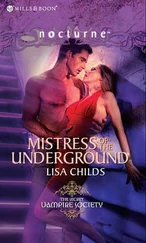Martin looked away. From the people on the porch, from the town. He turned his face north toward Virginia, where he had been free of his hometown for a time.
Jamison gestured and the night riders pulled Martin and Ethel to the park. The planter looked Cora over. “A nice treat,” Jamison said. Their scheduled victim was in the wings somewhere. “Should we do both?”
The tall man said, “This one is mine. I’ve made it clear.”
Jamison’s expression curdled. He was not accustomed to ignorance of his status. He asked for the stranger’s name.
“Ridgeway,” the man said. “Slave catcher. I go here, I go there. I’ve been after this one for a long time. Your judge knows all about me.”
“You can’t just come in here, muscling about.” Jamison was aware that his usual audience, milling outside the property, observed him with undefined expectations. At the new tremor in his words two night riders, young bucks both, stepped forward to crowd Ridgeway.
Ridgeway exhibited no bother over the display. “You all have your local customs going on here — I get that. Having your fun.” He pronounced fun like a temperance preacher. “But it doesn’t belong to you. The Fugitive Slave Law says I have a right to return this property to its owner. That’s what I aim to do.”
Cora whimpered and felt her head. She was dizzy, like she’d been after Terrance struck her. This man was going to return her to him.
The night rider who threw Cora down the stairs cleared his throat. He explained to Jamison that the slave catcher had led them to the house. The man had visited Judge Tennyson that afternoon and made an official request, although the judge had been enjoying his customary Friday whiskey and might not remember. No one was keen on executing the raid during the festival, but Ridgeway had insisted.
Ridgeway spat tobacco juice on the sidewalk, at the feet of some onlookers. “You can keep the reward,” he told Fiona. He bent slightly and lifted Cora by her arm. “You don’t have to be afraid, Cora. You’re going home.”
A little colored boy, about ten years old, drove a wagon up the street through the crowd, shouting at the two horses. On any other occasion the sight of him in his tailored black suit and stovepipe hat would have been a cause of bewilderment. After the dramatic capture of the sympathizers and the runaway, his appearance nudged the night into the realm of the fantastical. More than one person thought what had just transpired was a new wrinkle in the Friday entertainment, a performance arranged to counter the monotony of the weekly skits and lynchings, which, to be honest, had grown predictable.
At the foot of the porch, Fiona held forth to a group of girls from Irishtown. “A girl’s got to look after her interests if she’s going to get ahead in this country,” she explained.
Ridgeway rode with another man in addition to the boy, a tall white man with long brown hair and a necklace of human ears around his neck. His associate shackled Cora’s ankles, and then ran the chains through a ring in the floor of the wagon. She arranged herself on the bench, her head pulsing in agony with every heartbeat. As they pulled away, she saw Martin and Ethel. They had been tied to the hanging tree. They sobbed and heaved at their bonds. Mayor ran in mad circles at their feet. A blond girl picked up a rock and threw it at Ethel, hitting her in the face. A segment of the town laughed at Ethel’s piteous shrieks. Two more children picked up rocks and threw them at the couple. Mayor yipped and jumped as more people bent to the ground. They raised their arms. The town moved in and then Cora couldn’t see them anymore.

EVER since she saw a woodcut of a missionary surrounded by jungle natives, Ethel thought it would be spiritually fulfilling to serve the Lord in dark Africa, delivering savages to the light. She dreamed of the ship that would take her, a magnificent schooner with sails like angel wings, cutting across the violent sea. The perilous journey into the interior, up rivers, wending mountain passes, and the dangers escaped: lions, serpents, man-killing plants, duplicitous guides. And then the village, where the natives receive her as an emissary of the Lord, an instrument of civilization. In gratitude the niggers lift her to the sky, praising her name: Ethel, Ethel.
She was eight years old. Her father’s newspapers contained tales of explorers, unknown lands, pygmy peoples. The nearest she could get to the image in the newspaper was playing missionary and native with Jasmine. Jasmine was like a sister to her. The game never lasted long before they switched to husband and wife, practicing kisses and arguments in the cellar of Ethel’s house. Given the color of their skins, there was never any doubt over their roles in either game, Ethel’s habit of rubbing soot onto her face notwithstanding. Her face blackened, she practiced expressions of amazement and wonder in front of the mirror so she’d know what to expect when she met her heathens.
Jasmine lived in the upstairs room with her mother, Felice. The Delany family owned Felice’s mother, and when little Edgar Delany turned ten, he received Felice as a present. Now that he was a man, Edgar recognized that Felice was a miracle, tending to the affairs of his house as if she were born to it. He recounted her darky wisdom as a matter of routine, sharing her parables about human nature with guests whenever she disappeared into the kitchen so that when she returned their faces glowed with affection and jealousy. He gave her passes to visit the Parker plantation every New Year’s Day feast; Felice’s sister was a washwoman there. Jasmine was born nine months after one such visit, and now the Delanys owned two slaves.
Ethel thought that a slave was someone who lived in your house like family but was not family. Her father explained the origin of the negro to disabuse her of this colorful idea. Some maintained that the negro was the remnant of a race of giants who had ruled the earth in an ancient time, but Edgar Delany knew they were descendants of cursed, black Ham, who had survived the Flood by clinging to the peaks of a mountain in Africa. Ethel thought that if they were cursed, they required Christian guidance all the more.
On her eighth birthday, Ethel’s father forbid her to play with Jasmine so as not to pervert the natural state of relations between the races. Ethel did not make friends easily, even then. She sobbed and stomped for days; Jasmine was more adaptable. Jasmine assumed simple duties around the household and took over her mother’s position when Felice’s heart seized and she fell mute and paralyzed. Felice lingered for months, her mouth open and pink, eyes foggy, until Ethel’s father had her removed. Ethel observed no disturbance in her old playmate’s face when they loaded her mother into the cart. By then the two did not speak outside of household matters.
The house had been built fifty years before and the stairs creaked. A whisper in one room carried into the next two. Most nights after supper and prayers, Ethel heard her father going up the crooked stairs, guided by the bobbing light of the candle. Sometimes she sneaked to her bedroom door and caught a glimpse of his white bedclothes disappearing around the corner.
“Where are you going, Father?” she asked one night. Felice had been gone two years. Jasmine was fourteen.
“Going upstairs,” he said, and both experienced a strange relief now that they had a term for his nocturnal visits. He was going upstairs — where else did the stairs lead? Her father had given one explanation for the separation of the races in fratricidal punishment. His nighttime trips elaborated on the arrangement. Whites lived downstairs and blacks lived upstairs, and to bridge that separation was to heal a biblical wound.
Читать дальше













